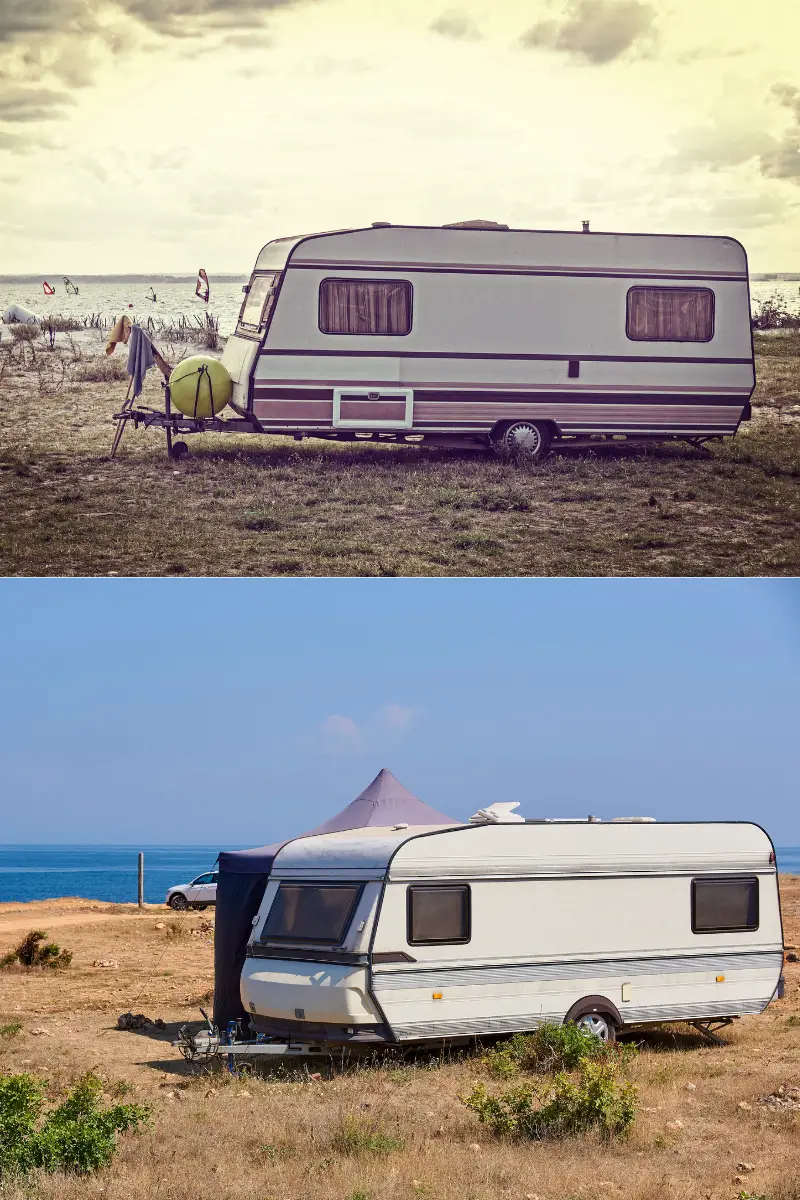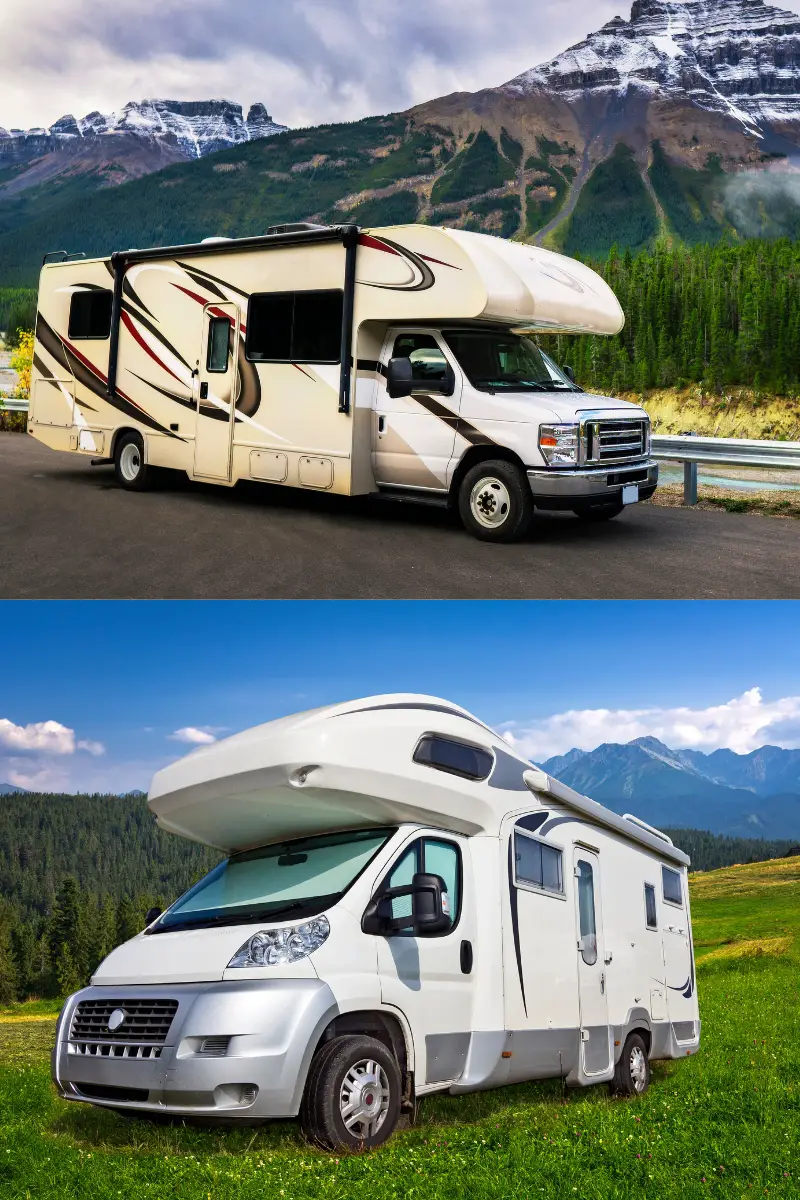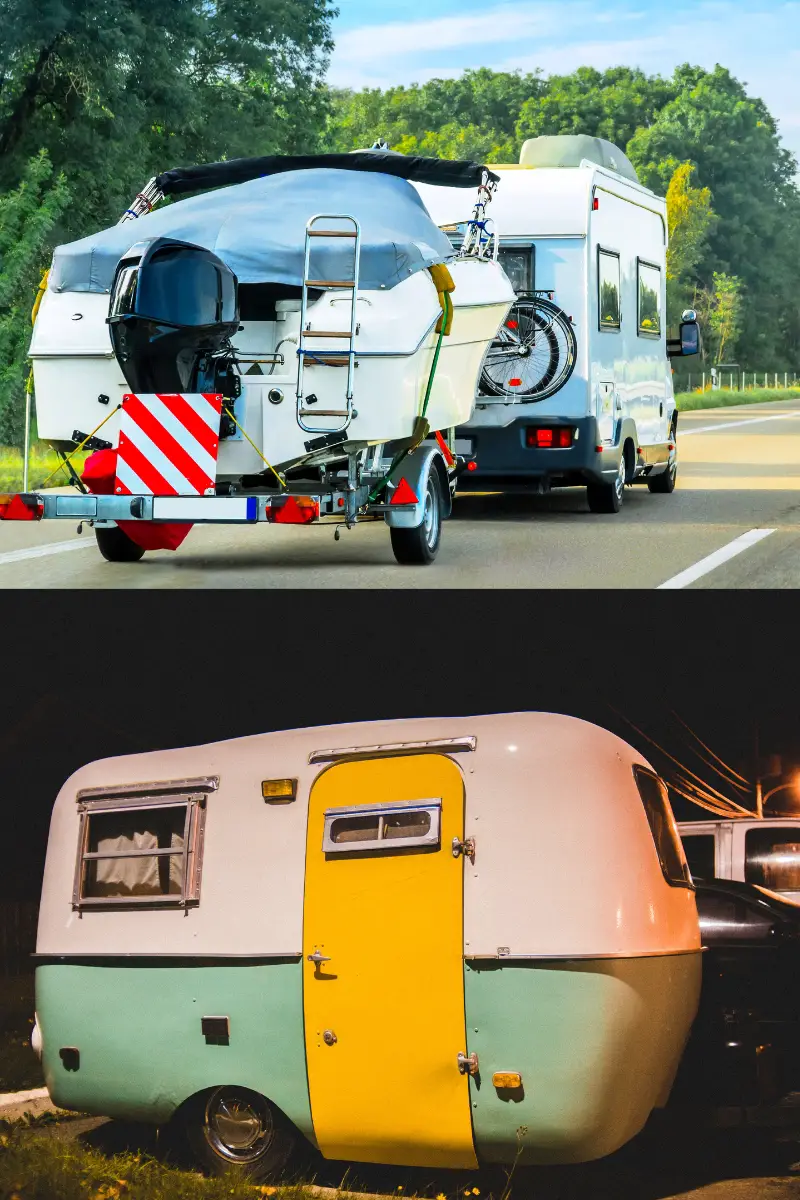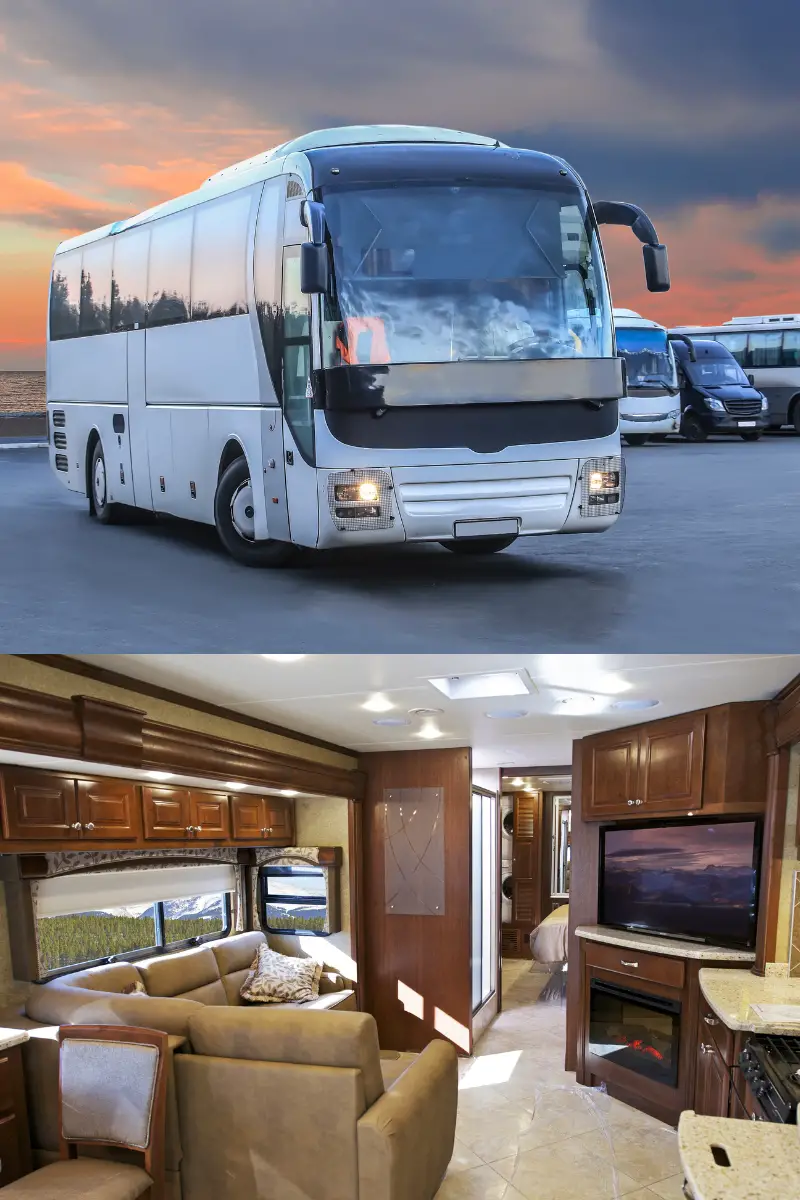Welcome aboard to your ultimate guide into the diverse world of RVs. We embark on a journey to uncover the lesser-explored facets of various types of RVs tailored specifically to the Australian landscape. Beyond the conventional narratives, we’re here to unveil the nuances and often overlooked details that can truly make a difference in your Australian RVing experience.
While many discussions focus solely on surface-level attributes, we’ll delve deeper, shedding light on the unique features, functionalities, and considerations that are seldom pondered but profoundly impact your choice. This isn’t just another promotional pitch; it’s an insightful expedition into the realm of RV exploration, aimed at empowering aspiring RVers with knowledge that goes beyond the ordinary. So, buckle up as we navigate through the diverse terrains of RV options, arming you with the insights needed to make a well-informed decision for your upcoming camping adventures Down Under.
Types of RVs
Caravans: The Traditional Choice
When it comes to exploring the vast Australian landscape, caravans stand tall as the quintessential symbol of freedom and mobility. Rooted in tradition yet versatile in design, they offer a myriad of benefits tailored to both novice and seasoned RVers alike. Here’s a closer look at why caravans remain a popular choice:
Overview of Caravans
Caravans are towable trailers types of RVs designed to provide comfortable living spaces on the road. They come in various sizes and layouts, catering to different needs and preferences.
Capacity
Caravans offer a diverse range of sleeping arrangements and amenities, accommodating anywhere from two to eight individuals comfortably. From cosy couples’ retreats to spacious family-friendly layouts, there’s a caravan model to suit every group size and dynamic. Whether you seek intimate evenings under the stars or lively barbecues with loved ones, caravans provide the flexibility to tailor your travel experience to your specific capacity needs.
Pros of Caravans
- Flexibility: Easily unhitched, allowing for independent exploration without the need to bring along your entire living quarters.
- Affordability: Generally, more budget-friendly compared to motorhomes, making them an accessible option for those entering the RVing world.
- Customisation: With a plethora of aftermarket accessories and modifications available, caravans can be tailored to fit specific needs and preferences.
Cons of Caravans
- Towing Requirements: Requires a suitable tow vehicle, which may pose logistical challenges for some RVers, particularly those with limited towing experience.
- Storage Constraints: Limited storage space compared to motorhomes, requiring careful consideration of packing essentials.
- Setup Time: Setting up camp can be more time-consuming compared to motorhomes, as it involves levelling, stabilising, and connecting utilities.
In essence, while caravans remain a timeless choice for RV enthusiasts, weighing the pros and cons is essential to determine if they align with your travel aspirations and practical considerations.

Motorhomes: All-in-One Convenience
Embarking on an adventure with a motorhome is the epitome of convenience, offering a comprehensive solution to your travelling needs. Designed to seamlessly blend comfort and mobility, motorhomes present a compelling option for RVers seeking a hassle-free experience on the open road. Here’s a closer look at why motorhomes are favoured by many:
Overview of Motorhomes
Motorhomes, also known as RVs or campervans, are self-contained RVs that integrate living quarters with a motorised chassis. They come in various classes and sizes, ranging from compact camper vans to spacious Class A motorhomes.
Capacity
Motorhomes boast generous living space and facilities, accommodating anywhere from two to ten occupants comfortably. With dedicated sleeping areas, fully equipped kitchens, and bathroom amenities, motorhomes offer a luxurious home-on-wheels experience for extended journeys or weekend getaways.
Pros of Motorhomes
- Convenience: With everything you need onboard, motorhomes eliminate the need for towing and setup, allowing for spontaneous travel and easy access to amenities wherever you go.
- Comfort: Featuring ample living space, modern appliances, and climate control systems, motorhomes provide a comfortable and cosy environment for travellers of all ages.
- Versatility: Available in various configurations, motorhomes cater to diverse preferences, whether you’re a solo traveller, couple, or family seeking adventure on the road.
Cons of Motorhomes
- Cost: Motorhomes typically involve a higher initial investment compared to other RV types, and ongoing maintenance and fuel costs can add up over time.
- Size and Manoeuvrability: Larger motorhomes may pose challenges when navigating narrow roads, congested urban areas, or tight camping spots.
- Parking Restrictions: Limited parking options in urban areas or at certain attractions may require strategic planning and consideration when travelling with a motorhome.
In summary, motorhomes offer a convenient and comfortable way to explore the great outdoors, providing a home-like experience on wheels. However, weighing the pros and cons is essential to determine if a motorhome aligns with your travel preferences, budget, and logistical considerations.

Camper Trailers: Versatile and Lightweight
Camper trailers represent a versatile and lightweight option for RVers in Australia, offering a perfect blend of mobility and comfort for those eager to explore vast landscapes without compromising on amenities. Tailored to suit the needs of adventurers seeking flexibility and ease of travel, camper trailers present a compelling choice. Here’s a closer look at why camper trailers are gaining popularity:
Overview of Camper Trailers
Camper trailers are towable units types of RVs that provide compact yet functional living spaces, typically featuring sleeping quarters, kitchen facilities, and storage compartments. They come in a variety of styles and configurations, ranging from off-road models built for rugged terrain to lightweight designs suitable for urban adventures.
Capacity
Despite their compact size, camper trailers offer adequate sleeping arrangements for two to six individuals, depending on the model and layout. With clever space-saving solutions and versatile floor plans, camper trailers maximise interior space to ensure a comfortable experience for occupants.
Pros of Camper Trailers
- Manoeuvrability: Lightweight and easy to tow, camper trailers are well-suited for exploring remote destinations and accessing secluded camping spots that may be inaccessible to larger RVs.
- Affordability: Compared to motorhomes and caravans, camper trailers typically have a lower upfront cost, making them an attractive option for budget-conscious travellers.
- Customisation Options: With a wide range of accessories and add-ons available, camper trailers can be customised to fit individual preferences and lifestyle needs, allowing for a personalised camping experience.
Cons of Camper Trailers
- Limited Amenities: Due to their compact size, camper trailers may have fewer amenities compared to larger RVs, requiring travellers to adapt to a more minimalist lifestyle on the road.
- Setup Time: Setting up and packing down a camper trailer may take longer compared to other RV types, requiring additional time and effort at each campsite.
- Storage Constraints: While camper trailers offer ample storage solutions, travellers may need to prioritise essentials and pack strategically to optimise space utilization.
In conclusion, camper trailers offer a versatile and lightweight solution for RVers seeking adventure without sacrificing comfort or convenience. However, it’s essential to weigh the pros and cons to determine if a camper trailer aligns with your travel preferences and lifestyle requirements.

Converted Buses: Customized Freedom
Converted buses, also known as bus conversions, represent a unique and personalised approach to RVing, offering a blend of customisation and freedom that appeals to adventurous souls seeking unconventional travel experiences in Australia. Transforming a standard bus into a cosy living space allows RVers to unleash their creativity and tailor their mobile home to suit their tastes and preferences. Here’s why converted buses are capturing the imagination of intrepid travellers:
Overview of Converted Buses
Converted buses are former commercial vehicles types of RVs that have been repurposed and transformed into comfortable living spaces. From school buses to coach buses, these conversions range from minimalist dwellings to luxurious retreats, reflecting the diverse personalities and lifestyles of their owners.
Capacity
Converted buses offer generous living space and can accommodate anywhere from two to eight individuals, depending on the size and layout of the conversion. With clever design solutions and innovative layouts, these mobile homes provide ample room for sleeping, dining, and lounging.
Pros of Converted Buses
- Customisation: Converted buses offer unparalleled freedom for customisation, allowing owners to design and outfit their RV according to their unique preferences and needs.
- Sustainability: Repurposing an existing bus reduces waste and environmental impact, making converted buses a sustainable and eco-friendly choice for conscientious travellers.
- Unique Aesthetic: Each converted bus has its distinct personality and charm, reflecting the creativity and vision of its owner. From rustic and bohemian to modern and sleek, there’s a converted bus to suit every aesthetic sensibility.
Cons of Converted Buses
- Cost: While converting a bus can be a cost-effective alternative to purchasing a new RV, the initial investment and renovation expenses can add up quickly, especially for high-end conversions.
- Maintenance Challenges: Maintaining a converted bus requires specialised knowledge and skills, as well as regular upkeep to ensure safety and functionality on the road.
- Limited Accessibility: Converted buses may have limitations in terms of parking and manoeuvrability, particularly in urban areas or remote locations with narrow roads and tight spaces.
In summary, converted buses offer a one-of-a-kind RVing experience that combines the thrill of adventure with the comforts of home. While they require careful consideration and investment, the freedom to create a personalised sanctuary on wheels makes converted buses an appealing option for those seeking a truly unique journey.

Slide-On Campers: Flexibility in Travel
Slide-on campers, also known as truck campers, offer a versatile and compact option for RVers seeking flexibility and convenience in their travels across Australia. Designed to be mounted onto the bed of a pickup truck, these campers provide a nimble and adaptable solution for exploring remote destinations and accessing off-grid camping spots. Here’s why slide-on campers are gaining popularity among adventurous travellers:
Overview of Slide-On Campers
Slide-on campers are lightweight and compact types of RVs unit that can be easily loaded onto the back of a pickup truck. Transforming it into a fully functional mobile home. They come in various sizes and configurations, ranging from basic sleeping quarters to fully equipped living spaces with kitchenettes and bathrooms.
Capacity
Despite their compact footprint, slide-on campers offer comfortable accommodations for two to four individuals, depending on the size and layout of the camper. With clever design features and space-saving solutions, these campers maximise interior space to ensure a cosy and functional living environment.
Pros of Slide-On Campers
- Off-Road Capability: Slide-on campers are well-suited for off-grid adventures and rugged terrain, allowing travellers to explore remote destinations with ease.
- Manoeuvrability: Unlike larger RVs, slide-on campers provide greater manoeuvrability and access to narrow roads and tight camping spots, making them ideal for exploring secluded areas.
- Cost-Effectiveness: Slide-on campers typically have a lower upfront cost compared to motorhomes and caravans, making them an affordable option for budget-conscious travellers.
Cons of Slide-On Campers
- Limited Amenities: Due to their compact size, slide-on campers may have fewer amenities compared to larger RVs, requiring travellers to adapt to a more minimalist lifestyle on the road.
- Setup Time: Setting up and packing down a slide-on camper may take longer compared to other RV types, as it involves loading and unloading onto the truck bed, as well as levelling and stabilising the camper.
- Storage Constraints: While slide-on campers offer ample storage solutions, travellers may need to prioritise essentials and pack strategically to optimise space utilization.
Pop-Top Caravans: Space Saving Solutions
Pop-top caravans, often referred to as expandable or hybrid caravans, offer a clever space-saving solution for RVers in Australia, combining the comforts of a traditional caravan with the flexibility of a pop-up roof. Ideal for those seeking versatility and compactness without compromising on comfort, pop-top caravans provide an innovative approach to mobile living. Here’s why pop-top caravans are gaining traction among adventurers:
Overview of Pop-Top Caravans
Pop-top caravans feature a retractable roof section that can be raised when stationary, providing additional headroom and space inside the caravan. This types of RVs has innovative design allows for a more compact towing profile while still offering ample living space when set up at camp.
Capacity
Despite their compact exterior, pop-top caravans offer comfortable sleeping arrangements for two to six individuals, depending on the size and layout of the caravan. With clever design features and fold-out beds, these caravans maximise interior space to ensure a cosy and functional living environment.
Pros of Pop-Top Caravans
- Space-Saving Design: Pop-top caravans offer a compact towing profile, making them easier to manoeuvre and store compared to traditional caravans.
- Versatility: With the ability to raise the roof when stationary, pop-top caravans provide additional headroom and ventilation, creating a more spacious and comfortable living environment.
- Lightweight Construction: Typically lighter in weight compared to conventional caravans, making them easier to tow and more fuel-efficient, particularly for those with smaller tow vehicles.
Cons of Pop-Top Caravans
- Limited Insulation: The pop-top roof may provide less insulation compared to solid caravan roofs, resulting in potentially higher energy consumption for heating and cooling.
- Setup Time: Raising and lowering the pop-top roof may require additional time and effort compared to setting up a traditional caravan, particularly in inclement weather or windy conditions.
- Potential Maintenance Issues: The mechanisms and seals associated with pop-top roofs may require regular maintenance and inspection to ensure proper functionality and prevent water leaks or damage.
In summary, pop-top caravans offer a space-saving and versatile solution for RVers seeking comfort and flexibility on their travels. While they may have some limitations compared to traditional caravans, their innovative design and compactness make them an appealing option for those looking to make the most of their adventures on the road.
Conclusion
As we conclude our exploration into the diverse world of RVs in Australia, it’s evident that there’s no types of RVs that is one-size-fits-all solution when it comes to choosing the perfect recreational vehicle. From traditional caravans to innovative pop-top campers, each option offers its own set of advantages and considerations for aspiring RVers. By understanding the unique features, capacities, and pros and cons of different types of RVs, individuals can make informed decisions that align with their travel aspirations and lifestyle preferences. Whether you crave the convenience of a motorhome, the versatility of a camper trailer, or the customized freedom of a converted bus, the world of RVing awaits, ready to be explored on your terms. Stay tuned to All4RVs for more insights and inspiration on your journey to RVing bliss.
